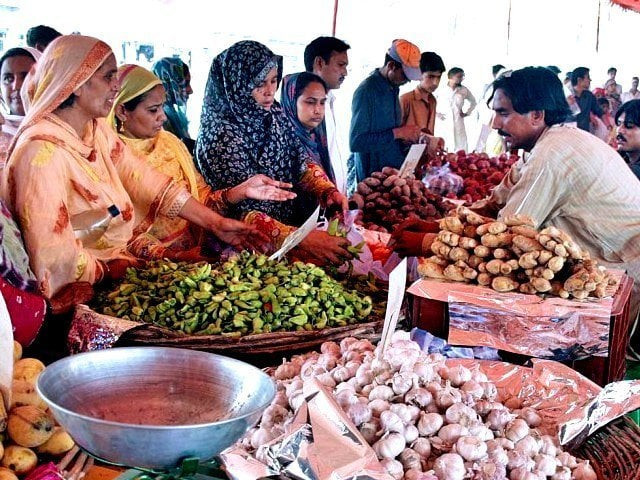Duties exempted on import of onion and tomatoes
Duty-free imports allowed from Afghanistan and Iran for three months

In an effort to stabilise the local market, the Federal Board of Revenue (FBR) on Thursday issued two SROs aimed at suspending duties on the import of onions and tomatoes till December 31, 2022.
“The prime minister has ordered immediate steps to ensure uninterrupted supply of onions and tomatoes to ease the hardships of the people,” read an FBR press release.
Owing to countrywide flash floods, fruit and vegetable crops have been severely damaged leading to scarcity of the two commodities across the country. The government has allowed the import of tomatoes and onions from Afghanistan and Iran to counter the shortage seen in domestic markets.
“The floods in Pakistan have not only destroyed crops but also disrupted our supply chain. The immediate effect was seen in urban centres where vegetable and fruit prices went up sixfold,” explained Ahmad Jawad, Vice President of the Pakistan Businesses Forum (PBF)
Highlighting fears of recession and increasing inflation being faced globally the PBF vice president said, “With the supply chain disruptions in the country, inflation may remain high for the next two months, however, the situation may improve in November”
Encouraging trade with India as being another feasible option Jawad says, “Pakistan could save foreign exchange by allowing direct imports from India for a period of three months. The direct import of vegetables through the Wagah border would be cost-effective and will help improve supply in the domestic market. The retail price after the arrival of imports will be not more than Rs90 per kg.”
Al Habib Capital Markets (AHCM) Research Head, Fawad Basir says the move will have a positive impact on the local food market.
“It is a supply side issue and August inflation has touched the highest ever point of 27.26%, witnessed after 1972.”
“The Consumer Price Index (CPI) for the month of August 2022 clocked in at 27.26% as compared to August 2021. There was also a 2.45% increase in CPI when compared to July 2022. This is the highest rate of inflation since November 1973,” noted Tahir Abbas, head of research at Arif Habib Limited (AHL).
Warning that the floods inflicted on farm land extended to infrastructural damage as well which could affect production in the near future, the PBF vice president said, “Tube wells and other private infrastructure belonging to farmers, especially in Sindh, were also damaged. And all the while fertiliser prices remain high,” he said.
“Dairy farmers have already been complaining about fodder supply constraints and the rising price of animal feed. It will not take long before they milk prices are increased,” warned Jawad.
Published in The Express Tribune, September 2nd, 2022.
Like Business on Facebook, follow @TribuneBiz on Twitter to stay informed and join in the conversation.



















COMMENTS
Comments are moderated and generally will be posted if they are on-topic and not abusive.
For more information, please see our Comments FAQ